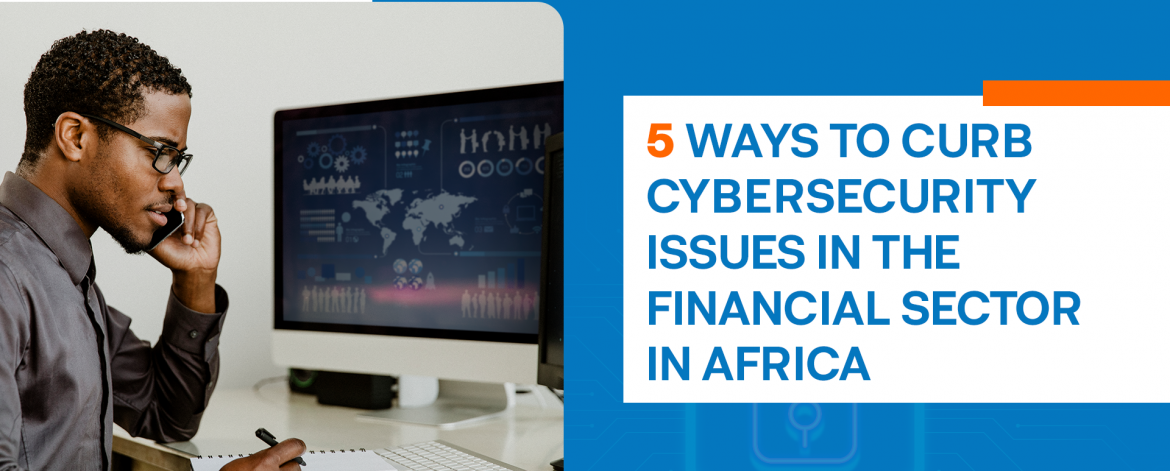Cybersecurity issues are quite popular globally, especially in the financial sector. According to The Cable, by 2025, it is estimated that cyber crimes will cost around $10.5 trillion globally. Another report by Approv, revealed that 95% of some of the famous banking and financial services apps in Africa contain easy-to-extract secrets. Without mincing words, cybersecurity is a massive problem in Africa, especially for large organizations, due to the dearth of innovation and technology.
In recent times, significant investment has been made into improving IT in this part of the world. Unfortunately, we are still lagging behind when it comes to dealing with cybersecurity issues. There is an urgent need for the implementation of robust cybersecurity measures by financial organizations on the continent. How do bodies in the financial sector in Africa curb cybersecurity issues?
The Challenge
Africa has experienced a rise in digital technology, especially in e-commerce and the financial sector, in recent times. This is largely because more people have access to the internet in this part of the world. With a rise in digital technology comes several benefits and, more importantly, challenges. One such challenge is cybersecurity.

Many businesses and firms in Africa and the rest of the continent lack sufficient information about setting up efficient IT security infrastructures. Close to 90% of these businesses don’t have any cybersecurity frameworks or protocols. This puts them at risk of unimaginable cyber threats.
Between 2022 and 2023, the main target of these cyber risks has been the financial sector. This raises the question of how firms in the financial sector in Africa can curb cybersecurity issues. Let’s discuss this in the next section.
Curbing Cybersecurity Issues in the Financial Sector in Africa
According to the Global Cybersecurity Index (2021), only 29 out of 54 African countries have introduced cybersecurity legislation. While this may seem impressive, it is insufficient to protect the businesses scattered across the continent, especially those in the financial sector.

As mentioned earlier, many businesses and firms in Africa have inefficient or non-existent cybersecurity frameworks to protect themselves and their clients. This makes them vulnerable to cyberattacks that can cause financial losses, data breaches, reputational damage, and systemic risks.
Here are five ways to curb cybersecurity issues in the financial sector in Africa:
Strengthening the legal and regulatory framework
This is the first step to protecting firms and businesses in the financial sector and every other sector. Governments and regulators in Africa should enact and enforce cybersecurity laws and standards. These laws and standards should require financial institutions and other service providers within the sector to implement adequate cybersecurity measures and report incidents. Regulatory bodies must also harmonize their cybersecurity policies and regulations with regional and international best practices.
Enhancing the institutional capacity
The financial authorities and agencies in Africa should establish dedicated units or departments responsible for overseeing and coordinating cybersecurity matters. These bodies should also provide training and guidance to their staff and stakeholders on preventing, detecting, and responding to cyberattacks.
Improving the technical infrastructure

While the government and regulatory bodies need to act fast, firms and businesses in the financial sector must also take some responsibility. Financial institutions and service providers in Africa should invest in upgrading their IT systems and networks to ensure they are secure, resilient, and compliant. One product that can be of service to these institutions is BeyondTrust. They should also adopt advanced technologies such as encryption, authentication, firewalls, antivirus software, and backup systems to protect their data and operations.
Promoting the public-private partnership
Dealing with cybersecurity threats calls for a partnership of different stakeholders. As such, the public and private sectors in Africa need to collaborate to deal with these issues. Through their collaboration, they can share information and resources to deal with threats efficiently. They should also establish platforms or forums to exchange best practices, experiences, and lessons learned. Also, they must engage with other stakeholders, such as academia, civil society, media, and international organizations, to raise awareness and build trust.
Developing the human capital
Last but not least, firms and businesses in the financial sector in Africa should foster a culture of cybersecurity among their employees and customers. These players must provide education and training on cybersecurity skills and awareness. Finally, they need to recruit and retain qualified cybersecurity professionals to help them manage their cyber risks. Support Link Technologies helps brands to hire IT personnel to meet their cybersecurity needs. Alternatively, they can outsource their cybersecurity processes to reliable IT and cybersecurity solution providers like Support Link Technologies.
Conclusion
With cybersecurity issues on the rise globally, financial institutions in Africa are constantly at risk of being breached. Therefore, it is imperative that they take steps to curb these issues. This post discussed five ways to curb cybersecurity issues in the financial sector in Africa. Would you like to learn more about how to protect your firm? Visit our website or send an email to info@supportlinktech.com. We have a range of solutions, including BeyondTrust, to help protect your brand from cyberattacks.


